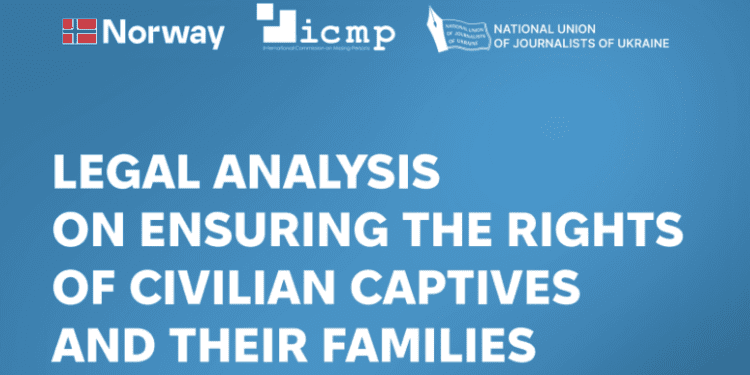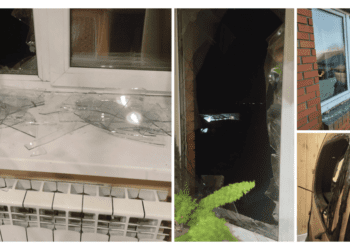The study, which reveals systemic problems faced by the families of civilian captives and proposes ways to strengthen their protection, was conducted by the National Union of Journalists of Ukraine with the support of the International Commission on Missing Persons.
Since Russia launched its full-scale invasion, thousands of Ukrainian civilians have been illegally detained, abducted, or disappeared. This crisis is accompanied by systematic violations of international humanitarian law but remains overshadowed by the issue of prisoners of war, receiving insufficient attention both nationally and internationally.
In June–July 2025, the National Union of Journalists of Ukraine (NUJU) conducted a survey among 94 families of civilian captives. The results revealed an alarming picture:
- 75% of families do not know where their relatives are being held;
- 60% receive no official information at all;
- 45% feel no support from the state;
- Abductions were confirmed by Ukrainian authorities in 89% of cases but by Russian authorities in only 33%.
“My husband has a brain tumor and needs constant medication. In captivity, he was tortured and lost his right eye, which had to be amputated. I want international human rights defenders to help release people like him,” — shared one of the participants in the study.
According to the families, civilian captives have far fewer chances of being included in prisoner exchanges compared to military personnel. They exist in a legal vacuum — without a defined status or the guarantees granted to prisoners of war.
Relatives emphasize the lack of a unified coordination center that could provide information, support, and consultations. Legal assistance and psychological support are particularly scarce — 37% of respondents said they receive no legal help at all.
Ukraine joined the International Convention for the Protection of All Persons from Enforced Disappearance in 2015. Criminal liability for enforced disappearance was introduced (Article 146-1 of the Criminal Code of Ukraine), and a Unified Register of Persons Missing under Special Circumstances was established.
However, serious challenges remain in practice. Russia has not joined the Convention, making it impossible to apply many of its mechanisms. There is insufficient coordination among Ukrainian authorities and inconsistency in terminology across legal frameworks. In addition, there is a clear disparity in rights between missing military personnel and civilians.
The NUJU study includes recommendations to improve the situation.
First, legislative changes are needed to unify terminology and ensure equal rights for civilian captives and prisoners of war.
Second, it is critically important to establish a single coordination center to collect information and provide comprehensive support to families.
International pressure on Russia through global institutions must also be strengthened, along with systematic and transparent communication with the public. Special attention should be paid to providing targeted assistance to captives who have no family members or whose families lack sufficient resources to advocate for their release.
The International Commission on Missing Persons (ICMP) has supported Ukraine since 2014, bringing expertise in forensic archaeology, anthropology, DNA analysis, and integrated data management. Within this study, ICMP also launched the LegalVox initiative to provide legal guidance to families of the missing.
The legal analysis was prepared by the NUJU team: Danyl Serbin (Legal Adviser to the NUJU Chair), Lina Kushch (First Secretary of the NUJU), and Valeriia Parkhomenko (Project Curator).
The research was carried out within the project “Promoting the Protection of Civilian Captives and Their Families through Personal Stories and Legal Analysis” with the support of the ICMP.
****
This project was made possible through financial support from the International Commission on Missing Persons (ICMP) funded by NORAD – the Norwegian Agency for Development Cooperation for the ICMP Ukraine Program. The views expressed in this material are those of the authors and do not necessarily reflect the views of the ICMP, its donors, or participating states.

 THE NATIONAL UNION OF
JOURNALISTS OF UKRAINE
THE NATIONAL UNION OF
JOURNALISTS OF UKRAINE
















Discussion about this post